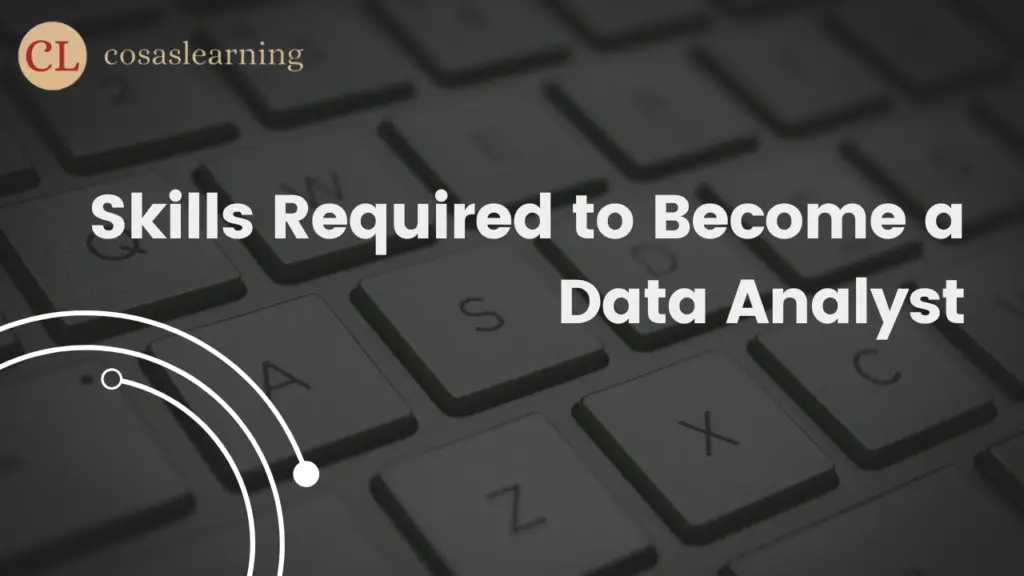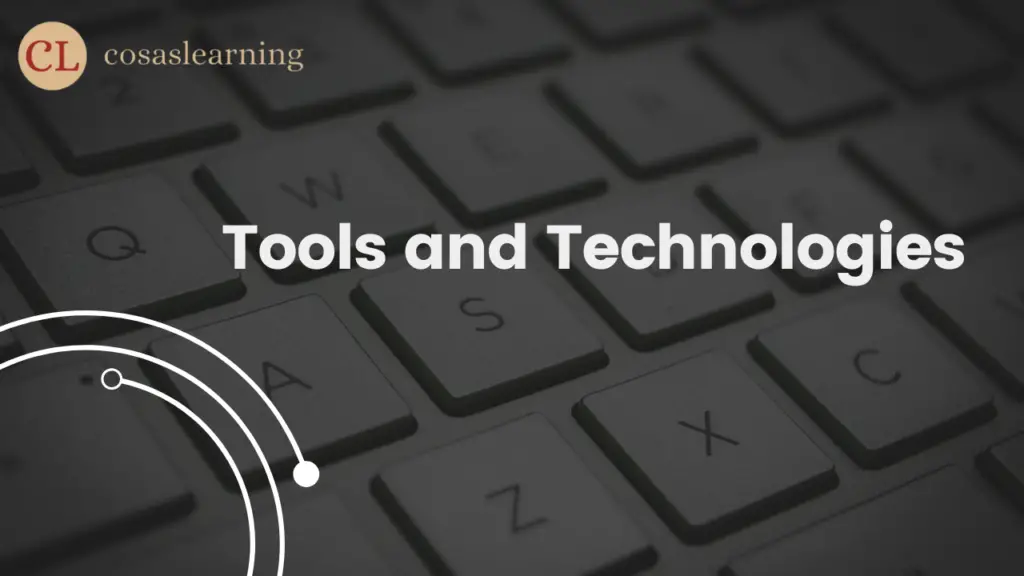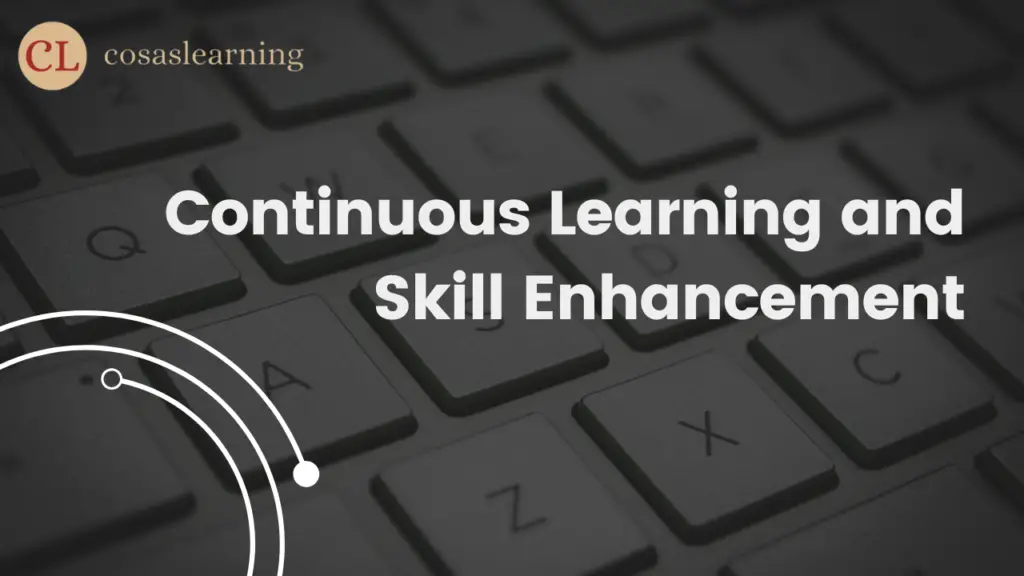Are you fascinated by the world of data and its potential to uncover valuable insights? Sure! If you’re interested, a job as a data analyst could be just right for you. Data analysts are important in companies as they study and make sense of data to help with smart decision-making. In this article, we will discuss how you can become a successful data analyst. We’ll cover everything from learning the essential skills to finding great job chances in this fast-growing area.
Introduction

In today’s world, where data is crucial, organizations from different fields depend on data analysts to understand the huge amount of information they gather. A data analyst’s work includes gathering, tidying up, studying, and explaining data to discover useful ideas that can assist with decision-making. This article aims to provide a comprehensive roadmap for aspiring data analysts, guiding them through the essential skills, educational background, hands-on experience, tools and technologies, networking opportunities, job search strategies, and continuous learning required to excel in this field.
Skills Required to Become a Data Analyst

To embark on a successful career as a data analyst, several key skills are necessary. Let’s explore some of these essential skills in detail:
Proficiency in Statistics and Mathematics
As a data analyst, you must possess a strong foundation in statistics and mathematics. This knowledge will enable you to apply statistical methods, conduct data modeling, perform hypothesis testing, and derive meaningful conclusions from data sets. To do data analysis well, it’s important to grasp concepts like probability, regression analysis, and statistical inference. These ideas are essential for understanding data effectively.
Knowledge of Programming Languages
Proficiency in programming languages is essential for data analysts. For data analysis, Python and R are common languages. Python is versatile, user-friendly, and excellent for managing, studying, and displaying data. R, on the other hand, provides specialized statistical libraries and packages that cater specifically to data analysis tasks. Familiarity with SQL (Structured Query Language) is also beneficial for working with databases.
Data Visualization Skills
Data visualization is important in data analysis. Presenting complex information in an attractive and simple way is highly valued. Tools like Tableau, Power BI, and matplotlib can assist you in making attractive charts, graphs, and interactive dashboards that effectively share data-driven insights.
Problem-Solving and Critical Thinking
Data analysts are problem solvers at their core. They must possess strong analytical and critical thinking skills to approach complex business problems and devise data-driven solutions. Being able to break down problems, find patterns, and think logically is incredibly valuable in data analysis.
Domain Knowledge
Having domain knowledge is advantageous for a data analyst. Knowing about the industry or sector you work in helps you understand the data better because you can grasp the context and details of the information. It helps you ask relevant questions, identify meaningful trends, and provide valuable insights that can drive business decisions.
Communication Skills
Effective communication is crucial for data analysts to convey their findings and insights to stakeholders who may not have a technical background. It’s crucial to be able to express complicated ideas in a clear and simple way. Additionally, strong interpersonal skills facilitate collaboration with cross-functional teams and stakeholders, ensuring that data analysis aligns with business goals.
Educational Background

You don’t need a specific background, but certain degrees and certifications can give you a strong base for a data analysis career.
Bachelor’s Degree in a Relevant Field
A bachelor’s degree in math, statistics, economics, computer science, or data science gives you essential knowledge for data analysis. These programs cover topics such as statistics, data structures, algorithms, and programming, providing a well-rounded education for aspiring data analysts.
Additional Certifications and Courses
Apart from a degree, obtaining certifications and completing relevant courses can enhance your data analysis skills and boost your career prospects. Certifications like the Certified Analytics Professional (CAP) and Microsoft Certified: Data Analyst Associate demonstrate your expertise in the field. Websites like Coursera, Udemy, and edX have many data analysis courses online. These courses can be really helpful for gaining specialized skills in the field.
Gaining Hands-On Experience

Building practical experience is crucial for a data analyst. Here are some ways to gain hands-on experience:
Internships and Entry-Level Positions
Internships and entry-level jobs give you a chance to use your skills in a real work environment, which is really valuable. Many organizations offer internships specifically tailored for data analysis roles, allowing you to work on real-world projects and collaborate with experienced professionals.
Personal Projects and Case Studies
Undertaking personal projects or case studies is an excellent way to showcase your skills and demonstrate your ability to analyze and interpret data. You can find publicly available datasets or use data from your personal interests to explore and derive insights.
Open Source Contributions and Kaggle Competitions
Engaging in open-source projects and participating in Kaggle competitions can expose you to diverse datasets and challenging problems. These platforms offer opportunities to collaborate with other data enthusiasts, learn from experts, and showcase your problem-solving abilities.
Tools and Technologies

Data analysts utilize various tools and technologies to efficiently analyze and visualize data. Some essential tools include:
SQL and Database Management Systems
SQL (Structured Query Language) is a tool used to ask questions and work with data kept in relational database management systems (DBMS). Proficiency in SQL allows you to extract relevant data, perform data cleaning operations, and combine data from multiple sources.
Programming Languages
Programming languages like Python and R are widely used in data analysis. Python has lots of useful libraries like Pandas, NumPy, and scikit-learn. These libraries give you strong tools for handling data, analyzing it, and doing machine learning tasks. R offers a rich ecosystem of packages for statistical analysis and data visualization.
Data Visualization Tools
There are tools for data visualization, like Tableau, Power BI, and matplotlib. With these tools, data analysts can make attractive charts, graphs, and interactive dashboards. These tools help in presenting data-driven insights effectively and facilitating better decision-making.
Statistical Analysis Tools
Statistical analysis tools like Microsoft Excel and SPSS are commonly used by data analysts. Excel offers a familiar interface for data manipulation, basic statistical analysis, and visualization. SPSS is a specialized software package that provides advanced statistical analysis capabilities.
Machine Learning Libraries
Machine learning is a key part of data analysis. Libraries such as scikit-learn and TensorFlow enable data analysts to implement various machine learning algorithms and perform predictive modeling tasks.
Building a Professional Network

Building a strong professional network is essential for career growth in data analysis. Here are some ways to expand your network:
Attend Industry Events and Conferences
Attending industry events and conferences related to data analysis allows you to connect with industry professionals, gain insights into emerging trends, and broaden your knowledge. These events often provide networking opportunities and the chance to engage in discussions with experts in the field.
Join Online Communities and Forums
Joining online communities and forums dedicated to data analysis offers a platform for knowledge sharing and collaboration. Websites like Reddit, Stack Overflow, and Kaggle provide opportunities to interact with like-minded individuals, seek advice, and contribute to discussions.
Networking on Professional Platforms
Platforms like LinkedIn and GitHub offer avenues to network with professionals in the data analysis field. Engage in discussions, share your work, and seek mentorship to foster meaningful connections and open doors to potential career opportunities.
Job Search and Career Opportunities

When it comes to job search and career opportunities in data analysis, the following strategies can be helpful:
Resume Preparation and Cover Letter Writing
Craft a well-structured resume and cover letter that highlight your relevant skills, experience, and projects. Tailor your application materials to each specific job description, showcasing how your capabilities align with the employer’s requirements.
Job Portals and Recruitment Websites
Utilize job portals and recruitment websites that specialize in data analysis roles. Platforms like LinkedIn, Indeed, Glassdoor, and DataJobs.com list a wide range of job opportunities in the field.
Interview Preparation and Techniques
Prepare for data analysis interviews by revisiting core concepts, practicing coding exercises, and reviewing common interview questions. Be prepared to discuss your past projects and demonstrate your problem-solving skills in real-time scenarios.
Continuous Learning and Skill Enhancement

Data analysis is a field that keeps changing, so it’s really important to keep up with the newest trends and techniques. Here are some ways to continue learning and enhancing your skills:
Stay Updated with Industry Trends
To stay informed about the latest developments in data analysis, you can follow industry publications, blogs, and podcasts. Engage in continuous learning to adapt to emerging technologies and methodologies.
Participate in Online Courses and Webinars
You can learn new techniques, tools, and best practices through online courses and webinars. Websites like Coursera, Udemy, and DataCamp have many courses taught by industry experts. These courses can be really helpful for gaining new knowledge and skills.
Collaborate on Data Analysis Projects
Collaborating with other data analysts on projects allows you to gain new perspectives, learn from different approaches, and expand your skill set. Join data analysis communities or contribute to open-source projects to engage in collaborative learning.
Conclusion

To succeed as a data analyst, you need technical skills, field knowledge, real-life experience, and a desire to learn. Follow the steps to begin a rewarding data analysis career. Remember to stay curious, be open to new challenges, and embrace lifelong learning to thrive in this dynamic field.
FAQs
Click Here : To Show Your Support! 😍





